Roberto Baggio on USA 94, playing through the pain and putting the beautiful in the beautiful game
Exclusive: The Italian icon tells Miguel Delaney about his career, his happiest moment and why he does actually prize the memory of Pasadena despite that infamous penalty miss
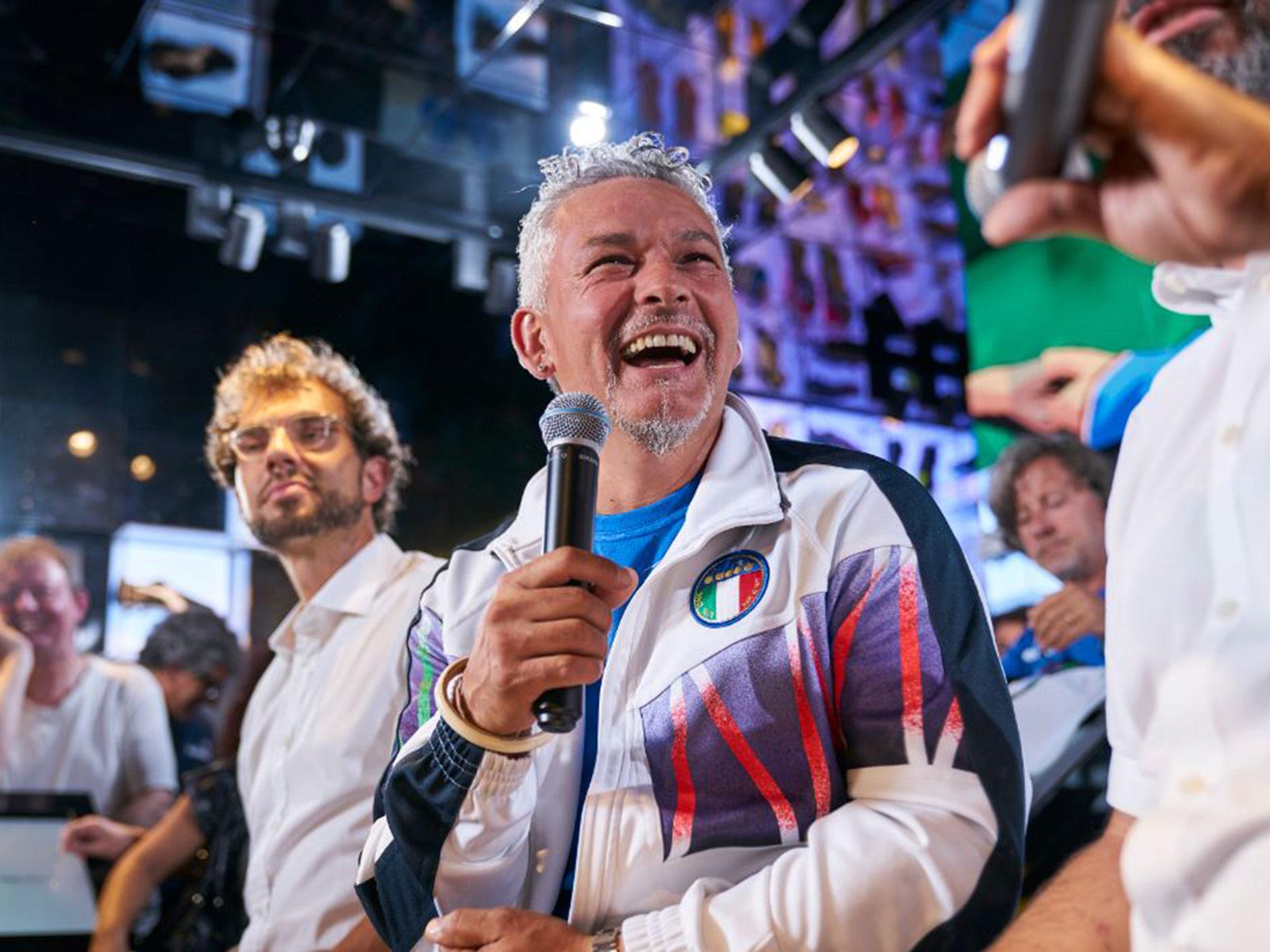
Your support helps us to tell the story
From reproductive rights to climate change to Big Tech, The Independent is on the ground when the story is developing. Whether it's investigating the financials of Elon Musk's pro-Trump PAC or producing our latest documentary, 'The A Word', which shines a light on the American women fighting for reproductive rights, we know how important it is to parse out the facts from the messaging.
At such a critical moment in US history, we need reporters on the ground. Your donation allows us to keep sending journalists to speak to both sides of the story.
The Independent is trusted by Americans across the entire political spectrum. And unlike many other quality news outlets, we choose not to lock Americans out of our reporting and analysis with paywalls. We believe quality journalism should be available to everyone, paid for by those who can afford it.
Your support makes all the difference.It was almost 6,000 miles from the Rose Bowl in Pasadena, and almost four years since the final of USA 94, but one of those moments that sport manages to so fully imbue with almost fictional thematic importance - and so much consequence.
Having missed Euro 96 through injury that derailed his career, and having missed what was perhaps the most famous penalty ever taken in that California stadium against Brazil, Roberto Baggio was back up front for Italy in their next World Cup match and back in a familiar situation. His side were 2-1 down to Chile with six minutes to go of their opening France 98 group match in Bordeaux, and the then 31-year-old was stepping up for a penalty.
So simple an action, such stark potential consequences, as he knew all too well. Baggio needed to score, but for reasons much greater than just Italy claiming a draw.
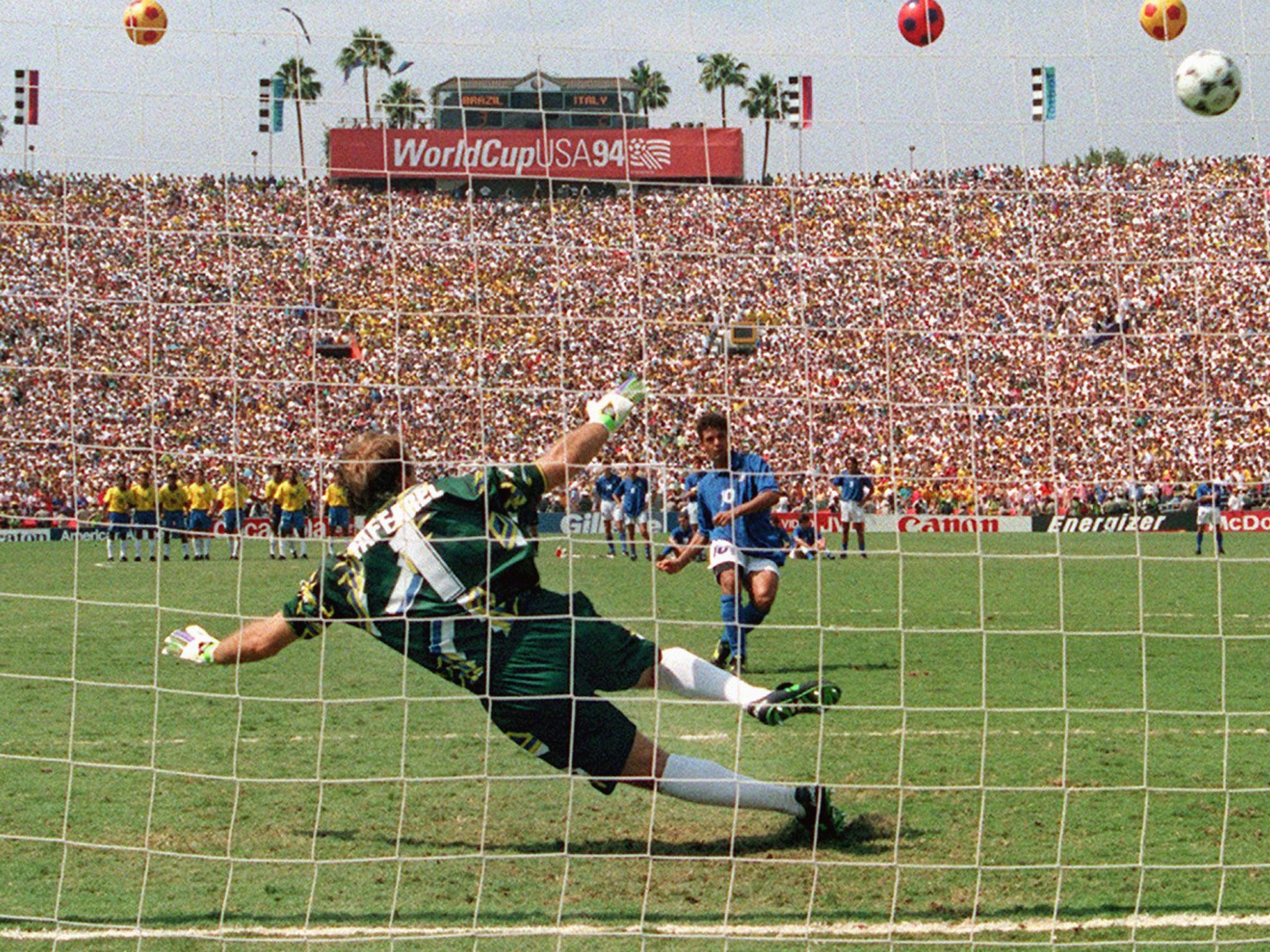
So, what was going through his head? If the idealised approach to such moments is to clear your mind, was he thinking of USA 94?
“Oh of course,” he says, the blue eyes still sparkling, the goatee still there, but the hair now grey and noticeably short. “Of course I was thinking about it. It’s inevitable you would, and I also knew I had to score. Otherwise, I’d have dug myself into a hole, never to come out.”
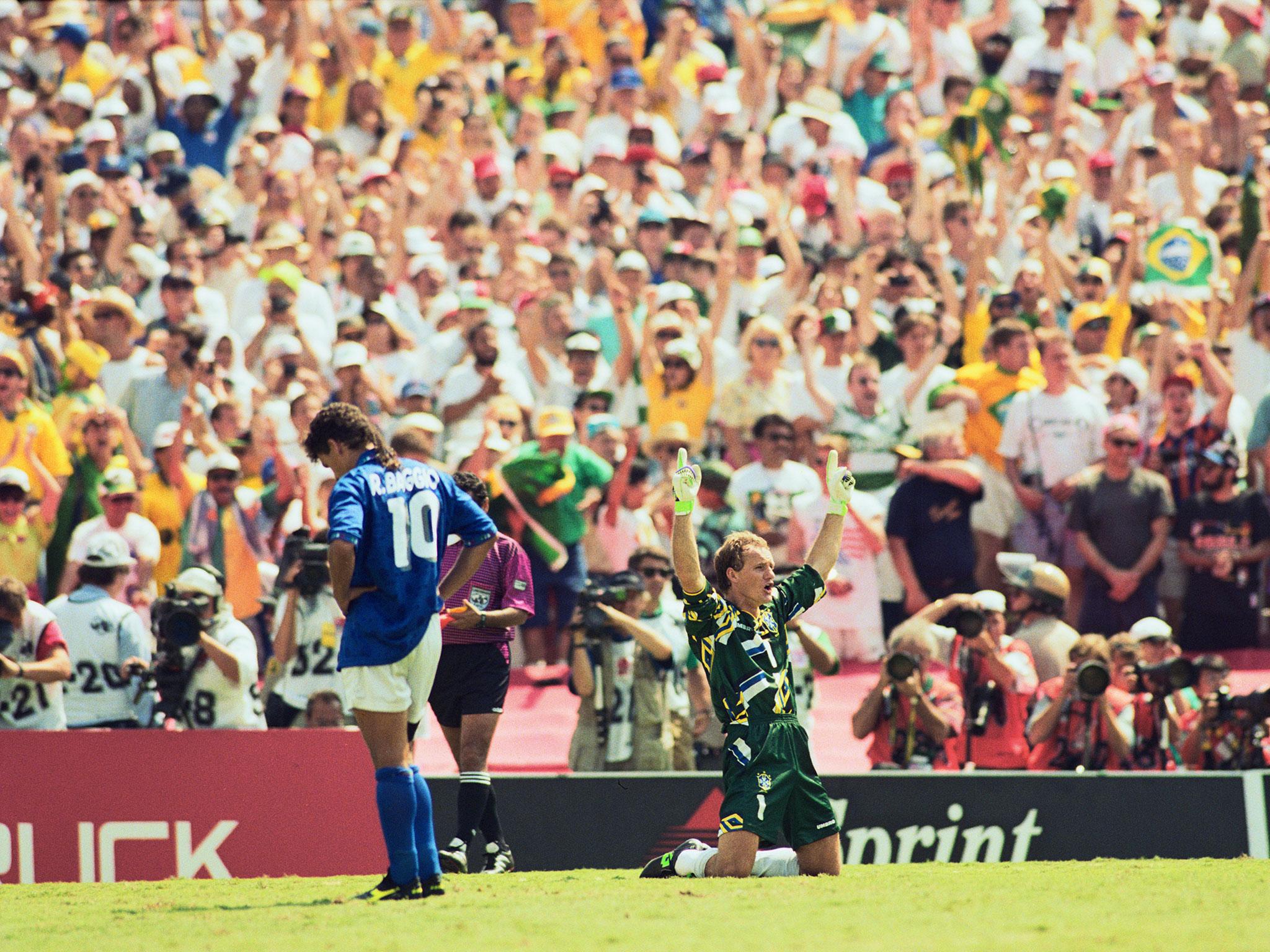
It’s probably easier for him to admit that now because he actually went and scored against Chile - so pointedly hitting it so low and into the corner past Nelson Tapia, in complete contrast to 1994 - but it must have made it incredibly difficult to deal with at the time. That could be seen in his preparation for the kick, as he quietly put his hands on his knees when the penalty was awarded, and in his almost contemplative celebration after the initial emotional release of scoring. Baggio afterwards said the strike “killed the ghost of 1994”, and that the miss had genuinely consumed him for four years.
Now, with that penalty against Brazil having been discussed more than anything else in his 50 years, he has distilled his thoughts on it to a simple but very meaningful few words: “It felt exactly as you would expect.”
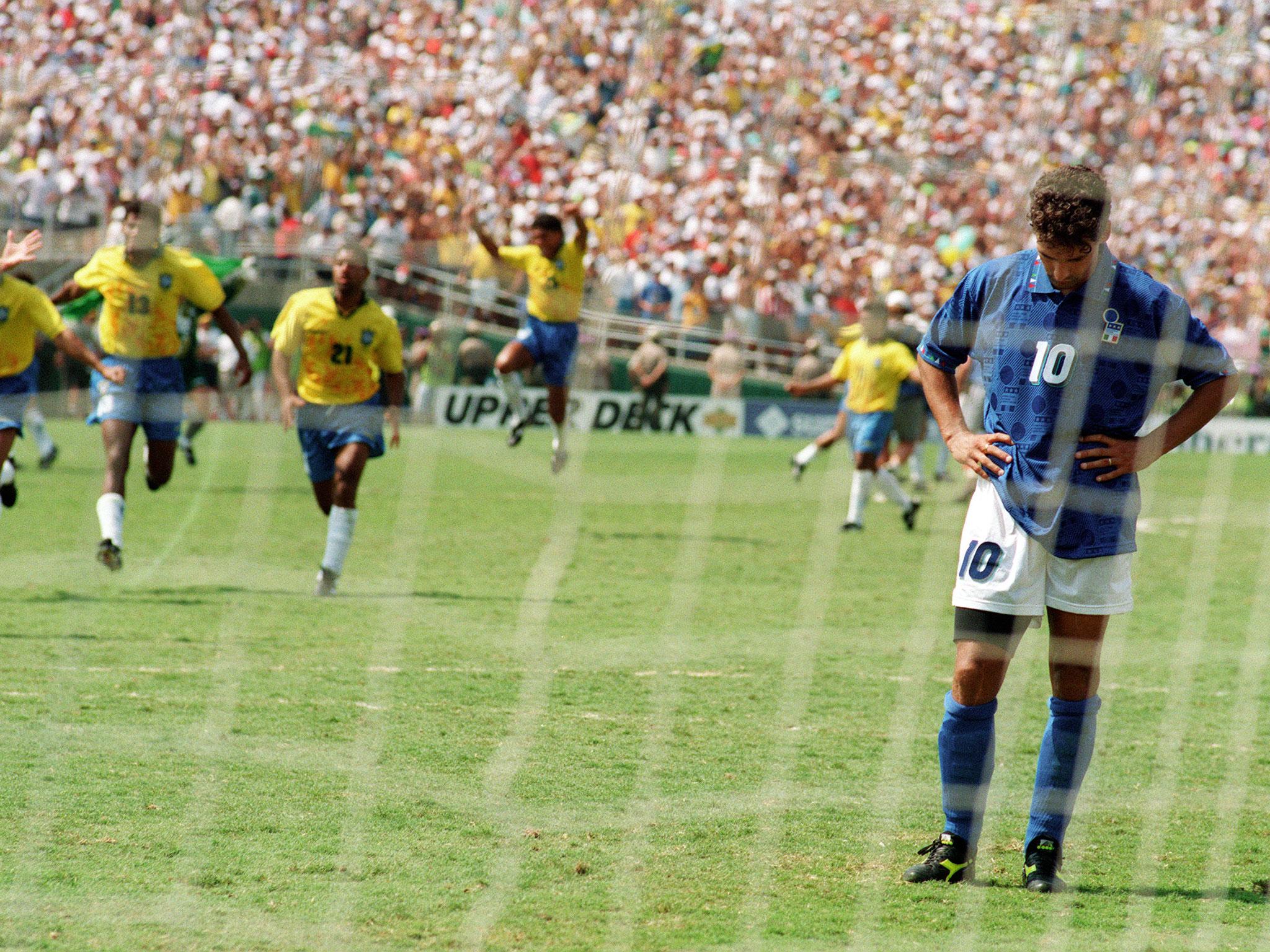
If it similarly feels harsh that a player of such brilliance has been so defined by one moment of failure, it is partly because of the obvious historic significance, partly because of the very distinctive nature of that career.
Baggio was first of all so impressionistic a footballer that he became generally defined by image, by aesthetic. Hence the power of that picture as he stood crestfallen with hands on hips while Brazilian goalkeeper Claudio Taffarel threw his into the air, the linear symmetry of the white lines on green pitch in such brilliant sunshine only accentuating the emotional extremes of their reactions. There's also that ponytail; there’s that purple Fiorentina scarf he picked up after refusing to take a penalty for Juventus against his old club; there’s the stunned reaction when Arrigo Sacchi so astonishingly took him off in that 1994 World Cup match against Norway; there’s that tournament’s famous deep blue Diadora kit that is now being evoked in a new range he is actually promoting in London for this interview and - most of all - there are so many moments of magic and creativity.
That’s the second thing about Baggio’s career, the enthralling twist that is almost as enticing in nature as the one-touch turn in the air that took him around Edwin van der Sar for that supreme late equaliser for Brescia against Juventus in 2001. He actually only won four major trophies, with just two of them league titles and none of them a Champions League or international trophy. That is very low for a player of such historic ability, especially one who was so clearly the best in the world for at least two years from 1992 to 1994 and played for all of Serie A’s major clubs, but there can’t have been too many players anywhere who offered so many truly inventive and distinctive goals; as impossibly smooth as they were impressively spectacular.
Five of them came in USA 94, and it is remarkable to think the first was an 88th-minute equaliser against Nigeria in the second round after what had been a torrid group stage. “That got the house off my back”, he says, and it also opened the door. Baggio followed it with the winning penalty in extra-time, an elusively precise 88th-minute winner against Spain in the quarter-finals, and then both goals in the 2-0 semi-final win over Bulgaria. All of that ensured he became one of those rare players like Diego Maradona to completely define a World Cup and make the tournament his, all the more so because of how it ended, just as his career somehow feels all the more cherished because it was so gloriously flawed.
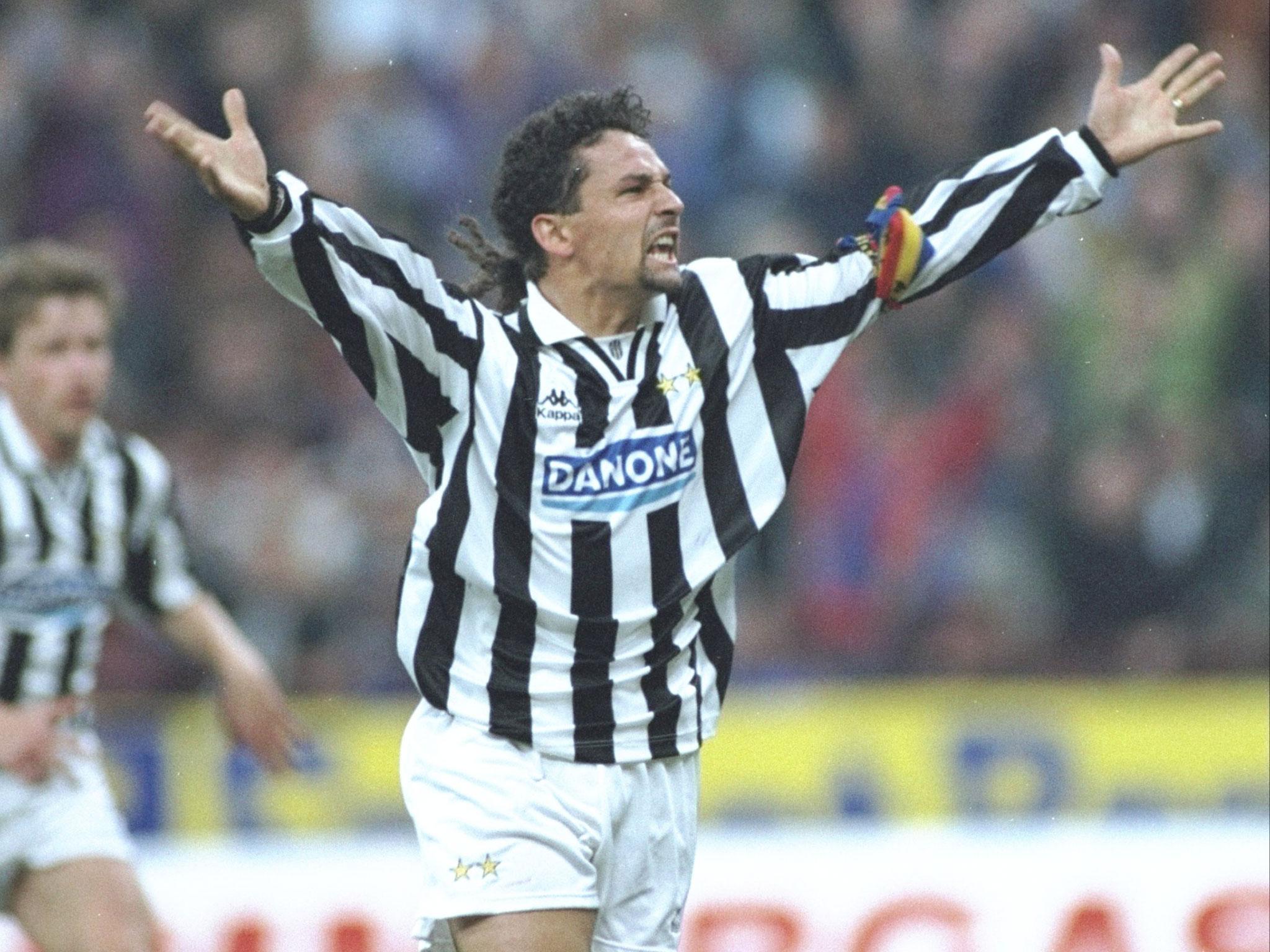
That he got that far at all was arguably genius in itself, given that injury for hometown club Vicenza at the age of just 18 in 1985 led a doctor to say he would never play again. For all the fame of later events in his career, he now says that was his greatest feat: “proving that doctor wrong”. Fiorentina were due to buy him just days after that injury and their trust in him - as well as a willingness to fund his operation and recovery - were why he always felt a special appreciation for them, even after being sold to Juventus against his will for a world-record transfer fee.
Sitting in a football boot shop in Carnaby Street and speaking in that understated and quiet but evidently contented manner, Baggio also confirms another story, that makes that feat even more impressive. He was allergic to painkillers.
“I learned to live with the pain.”
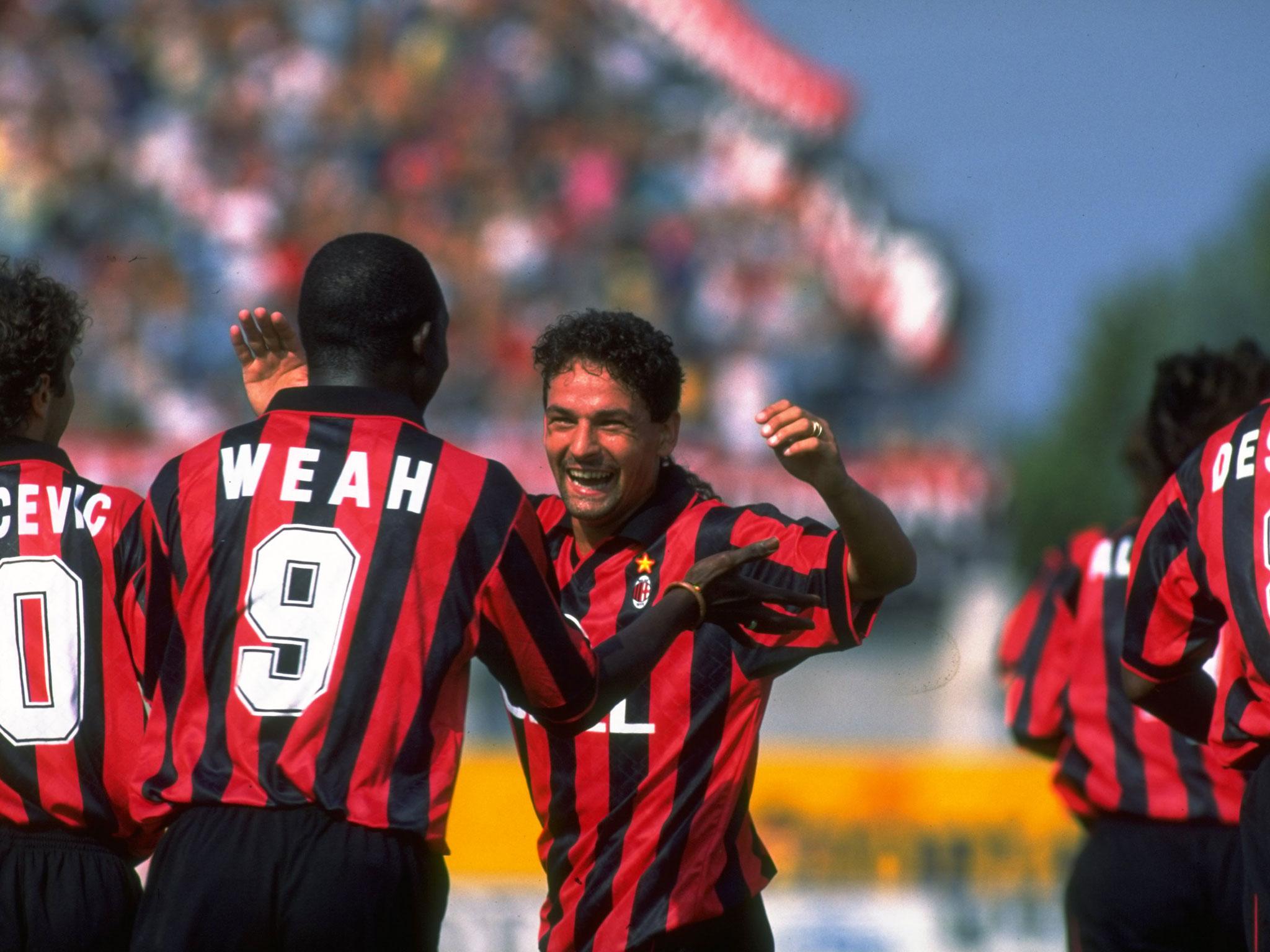
That is a sentence with multiple layers of meaning, because of what happened in his career as well as how much of it was curtailed by injury, and because he was one of those players who so evidently enjoyed the game. He more than played through pain. There was just an exuberant joy to his play. It was his opportunity to create, to express himself, to do something different. The beauty of watching Baggio was that he would just make things happen, and they were so often exquisite.
He had this rare delicacy to every touch that still wrought extreme destruction.
“If I could try to do the magical thing, I would,” Baggio says, “but always in an effective way. If there’s something beautiful about it, it’s better. I would do what I felt like doing, what came naturally to me.”

One of the more interesting aspects of players of such invention is what goes through their mind at moments of such creation, let alone moments like the penalty against Chile. What was Baggio thinking when so delicately evading Spain’s Andoni Zubizarreta in 1994 before so precisely sliding the ball in from an angle; when he somehow hooked the ball over the Lazio goalkeeper Angelo Peruzzi in a crowded penalty box for Brescia?
Some similar players say there’s no thinking and it’s just instinct, barely able to remember what they actually did or how, simply because they were so inherently capable of it. It just happens. Some like Dennis Bergkamp have spoken of how it was as if time slowed down. It’s actually none of that for Baggio.
“Time never stood still for me,” he laughs. “It went too fast, that was the bad thing about it! No, it was more a thought process than instinct. They were decisions I would make in the moment, based on what was going on before, what was happening around me. Sometimes it would go well, sometimes it wouldn’t. I liked to score, but I also liked to make somebody else score. It was something that was very satisfying, to take someone there.”
Baggio’s career took him to a lot of places, from Vicenza to Fiorentina to Juventus to Milan to Bologna and onto Inter, but it’s often thought he was happiest in his final four years at Brescia, where he hit 46 goals in 101 games and twice took the lowly club into the Uefa Cup. It’s another interesting question about his career, one that did see him have a certain amount of difficulty with Italy’s more systemic coaches like Marcello Lippi and Sacchi: when was he actually happiest?
His answer is telling.
“I always had that joy of the game in my eyes everywhere I played, because it was the best thing, but Brescia probably had less pressure. Maybe people might perceive more enjoyment because the pressure was different but it was the same. I enjoyed the pressure, no problem!”
And that is why he can still actually prize the memory of that World Cup.
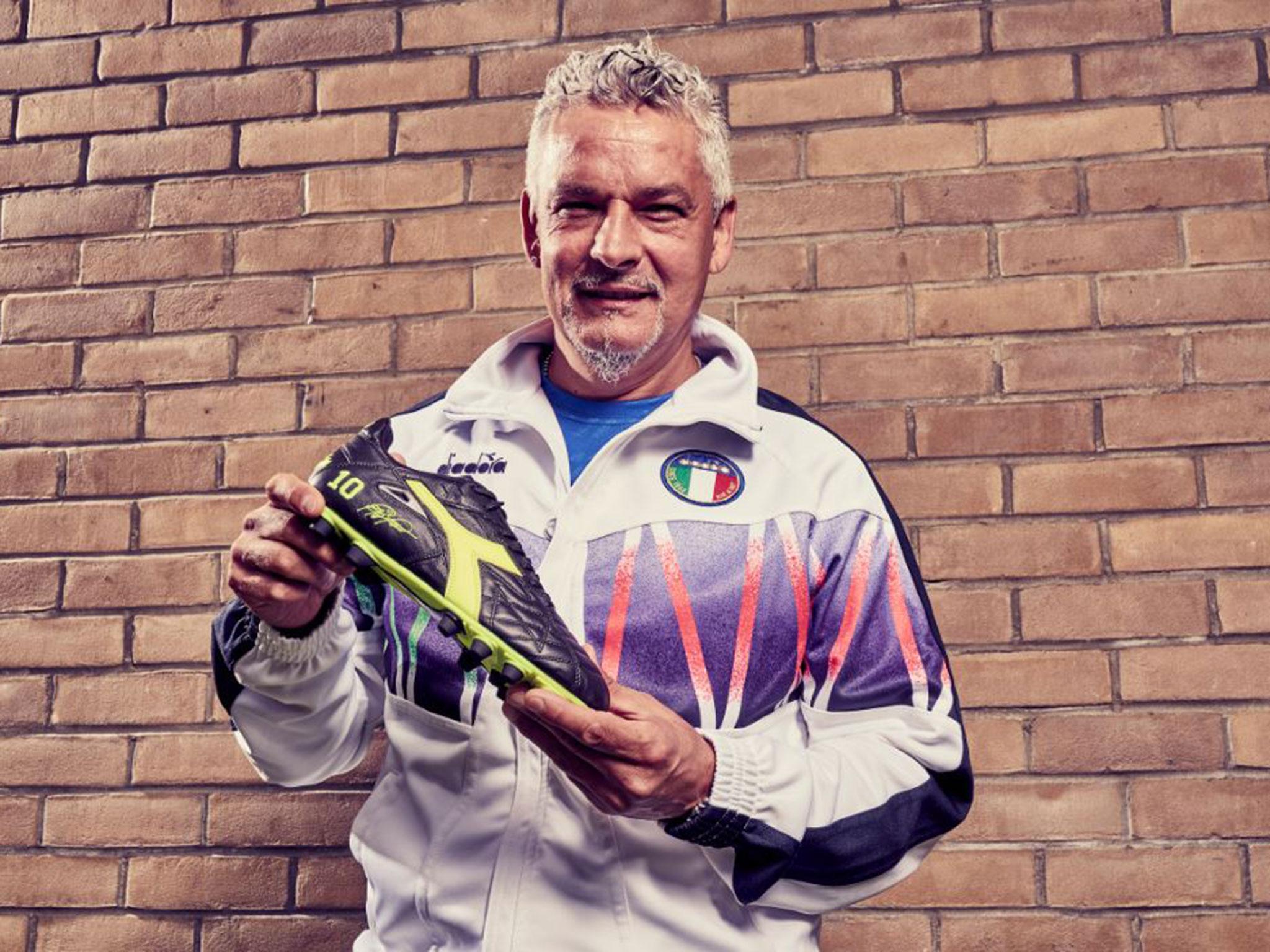
“If I had to say one time, it would be the 1993-94 period. I had just come off winning the Ballon D’Or, the best player in the world, got onto the World Cup. Yes, the final went as it went, but I probably would have won the Ballon D’Or again had it gone another way. Those are probably the two years I enjoyed most. I lost a lot of finals, so it was difficult. It’s sad, and that sadness stays with you, but I always enjoyed the game.”
He also had one main target in that game, and it wasn’t the World Cup trophy or European Cup.
“It was to make people happy.” It sums his career up as much as any penalty.
The Roberto Baggio x Diadora capsule will be available from prodirectsoccer.com and Diadora.co.uk. Prices from £60.00 - £190.00
Join our commenting forum
Join thought-provoking conversations, follow other Independent readers and see their replies
Comments